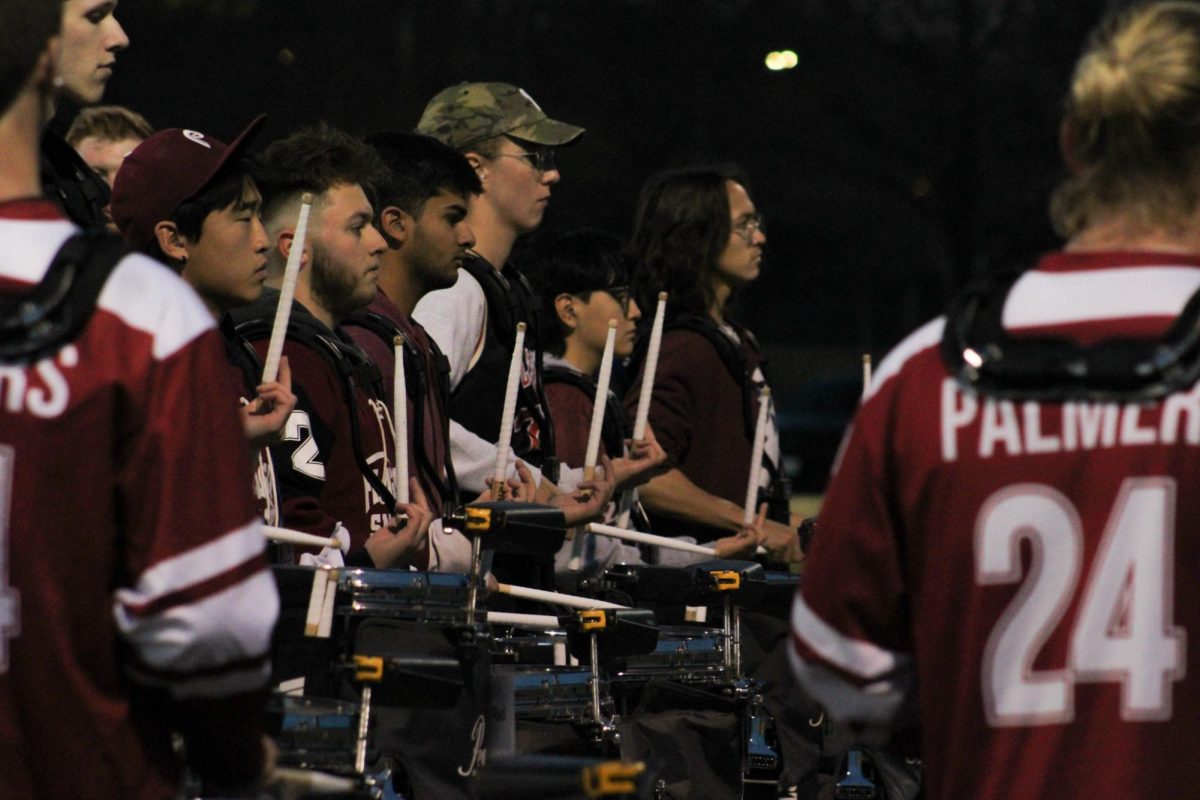
“Arrival,” one of 2016’s best science fiction films, is equipped with soul-stirring music, yet its original score was not nominated for an Academy Award. This is because a single piece, “On the Nature of Daylight” by Max Richter, was included as a non-original piece of music in the film. By including this one song of Richter’s, director Denis Villenueve and composer Jóhann Jóhannsson were foregoing the possibility of an Oscar by choosing instead to put a greater value on the impact that this piece would have on the movie.
“On the Nature of Daylight,” a violin-based piece from Richter’s 2004 record “The Blue Notebooks,” soundtracks some of “Arrival”’s most powerful moments. Without it, the film’s existential impact is undoubtedly less sharp. To the filmmakers of “Arrival,” no award was worth tainting the power of their work of art, which Richter’s song so greatly elevates.
Richter has spent a large portion of his career doing just that; elevating great pieces of visual art with his neo-classical compositions and orchestrations. He has, more than any composer today, brought the sounds of Bach and Beethoven to listeners too hesitant to delve into the supposedly antiquated sounds of these great classical masters.
Though Richter’s influences are rooted in these early composers, his music evokes the sounds of nearly every genre imaginable. Nuances of the revolt music of The Sex Pistols, transcendent ambient sounds of Brian Eno and the heavily lyric-based opera compositions of Derek Jarman can all be found within Richter’s music.
With Richter’s new record, “Three Worlds: Music from Woolf Works,” he is back again, with a record that contains enough beauty to bring listeners to tears. “Three Worlds: Music from Woolf Works,” released Jan. 27, is a singular testament to the power of music’s ability to move human beings. Therefore, if there were ever a time to move away from the more fleeting popular sounds of today and give slower, more contemplative classical music a try, this would be that moment.
“Three Worlds: Music from Woolf Works” was originally composed by Richter to accompany renowned choreographer Wayne McGregor’s first full-length piece for the Royal Ballet of London, “Woolf Works.” The piece is a ballet triptych in that takes its inspiration from the writings, letters and novels of great 20th century literary modernist Virginia Woolf. McGregor’s style of choreography exhibits ballet in new, contemporary ways. Filled with dazzling lights and special effects, the show itself, like Richter’s accompanying score, is a dramatically contemporary take on a classical form of art.
Yet because this ballet is not being performed anywhere in the United States, fans will likely never witness the choreographed visuals to which Richter composed his music. This, however, isn’t necessarily a bad thing. Richter’s music is so rich and layered—filled with spoken words, chiming bells and waves crashing onto shores—that these sounds, and the gorgeous melodies they accompany, create their own audible narratives.
“Three Worlds: Music from Woolf Works” contains epic refrains that call to the fragmented memories and subtle moments from the lives of each listener. “Memory is the seamstress,” says Woolf in “Orlando,” “the most ordinary movement in the world, such as sitting down at a table and pulling the inkstand towards one may agitate a thousand odd, disconnected fragments…”
Past Richter’s album titles, such as “Sleep” and “Memoryhouse,” convey the broader intention of his music. With perfect combinations of notes, he touches the subconscious and brings forth in our minds some of the most meaningful moments, many of which have long been dormant in our minds, of our past.
Richter’s new album can equally create meaningful memories in the present as well. Listen to the record’s second track, “II. Mrs. Dalloway: In the Garden,” while performing any mundane task. Suddenly, as the beautiful violin begins to accompany the song’s gorgeous piano progression, that mundane task will suddenly feel like the pinnacle of your day. The music of Max Richter is meant to be played against the sounds and happenings of life, helping us realize how truly spectacular each passing moment is and can be.
The album’s final track, “XVI. The Waves: Tuesday,” features Richter at his best; completely in tune with the emotional depth of his source material. Virginia Woolf’s suicide note to her husband is read, while the sounds of a faint violin, an empty sky and a drifting ocean linger in the foreground. After originally writing this note, Woolf would sadly drown herself in a river near her home. The tragedy and beauty of the sad note, and the sounds of the moving water are the truest homages to this artistic icon for her major contributions to the world of literature.
With that final track, millions of emotions are evoked in us, affirming that the power of classical music is alive and well within Richter. Give your moments the weight they deserve with a change of musical pace and this new record. In doing so, there is so little to lose and so much more to gain.
William Plotnick can be reached at [email protected].


















